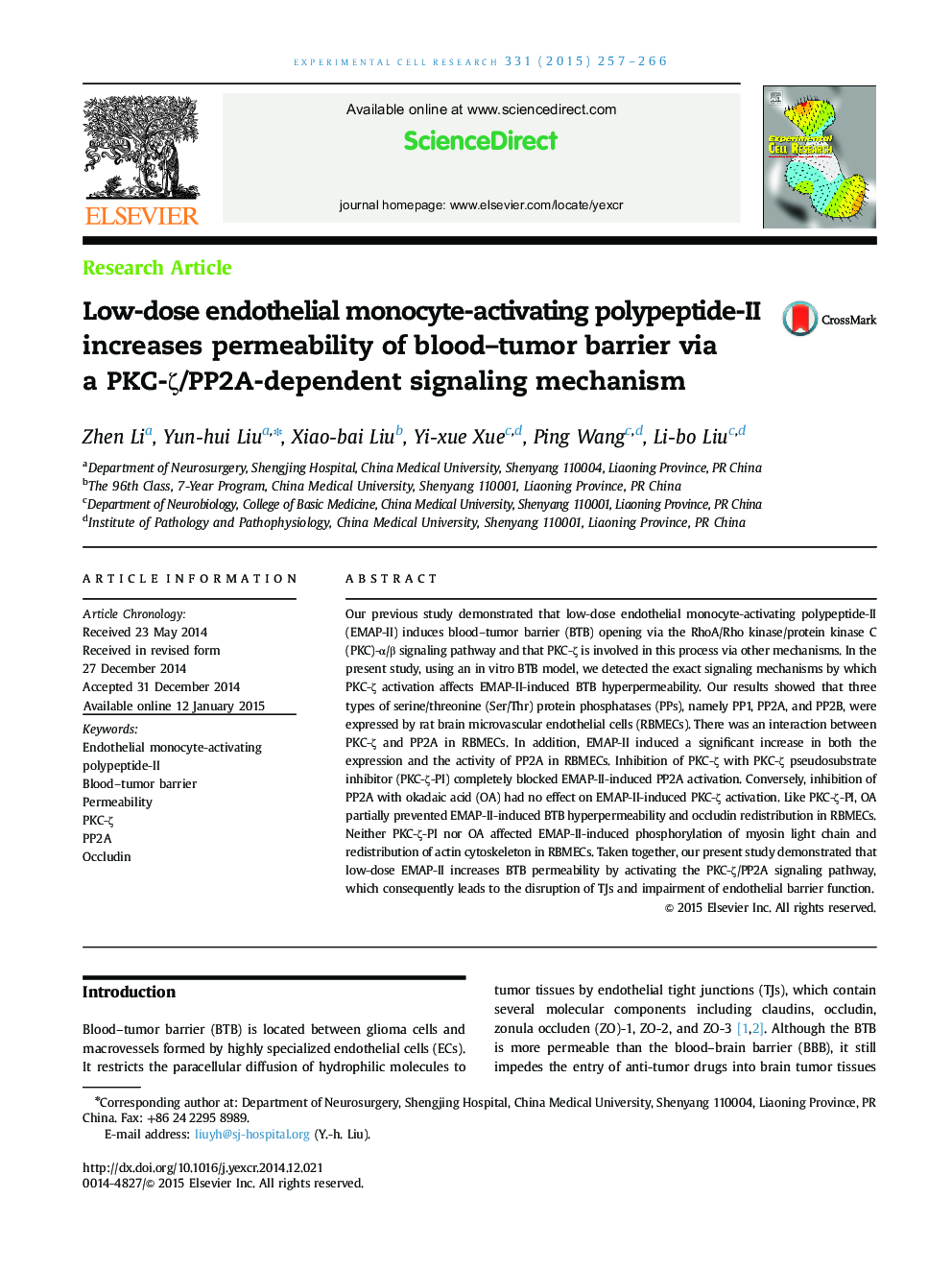| Article ID | Journal | Published Year | Pages | File Type |
|---|---|---|---|---|
| 10903811 | Experimental Cell Research | 2015 | 10 Pages |
Abstract
Our previous study demonstrated that low-dose endothelial monocyte-activating polypeptide-II (EMAP-II) induces blood-tumor barrier (BTB) opening via the RhoA/Rho kinase/protein kinase C (PKC)-α/β signaling pathway and that PKC-ζ is involved in this process via other mechanisms. In the present study, using an in vitro BTB model, we detected the exact signaling mechanisms by which PKC-ζ activation affects EMAP-II-induced BTB hyperpermeability. Our results showed that three types of serine/threonine (Ser/Thr) protein phosphatases (PPs), namely PP1, PP2A, and PP2B, were expressed by rat brain microvascular endothelial cells (RBMECs). There was an interaction between PKC-ζ and PP2A in RBMECs. In addition, EMAP-II induced a significant increase in both the expression and the activity of PP2A in RBMECs. Inhibition of PKC-ζ with PKC-ζ pseudosubstrate inhibitor (PKC-ζ-PI) completely blocked EMAP-II-induced PP2A activation. Conversely, inhibition of PP2A with okadaic acid (OA) had no effect on EMAP-II-induced PKC-ζ activation. Like PKC-ζ-PI, OA partially prevented EMAP-II-induced BTB hyperpermeability and occludin redistribution in RBMECs. Neither PKC-ζ-PI nor OA affected EMAP-II-induced phosphorylation of myosin light chain and redistribution of actin cytoskeleton in RBMECs. Taken together, our present study demonstrated that low-dose EMAP-II increases BTB permeability by activating the PKC-ζ/PP2A signaling pathway, which consequently leads to the disruption of TJs and impairment of endothelial barrier function.
Related Topics
Life Sciences
Biochemistry, Genetics and Molecular Biology
Cancer Research
Authors
Zhen Li, Yun-hui Liu, Xiao-bai Liu, Yi-xue Xue, Ping Wang, Li-bo Liu,
